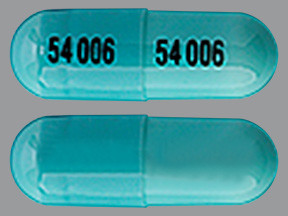CYCLOPHOSPHAMIDE - ORAL
PHONETIC PRONUNCIATION: (sye-klo-FOSS-fuh-mide)
COMMON BRAND NAME(S): Cytoxan
GENERIC NAME(S): cyclophosphamide
Uses
USES: Cyclophosphamide is used to treat various types of cancer. It is a chemotherapy drug that works by slowing or stopping cell growth. Cyclophosphamide also works by decreasing your immune system's response to various diseases. It is used to treat a certain type of kidney disease in children after other treatments have not worked.
How to use CYCLOPHOSPHAMIDE - ORAL
HOW TO USE: Take this medication by mouth exactly as directed by your doctor. The dosage is based on your medical condition, weight, response to treatment, and other treatments (such as other chemotherapy drugs, radiation) you may be receiving. Be sure to tell your doctor and pharmacist about all the products you use (including prescription drugs, nonprescription drugs, and herbal products). During treatment with this medication, you must drink more fluids than usual and pass urine frequently to help avoid kidney and bladder side effects. Ask your doctor how much you should drink and how often to empty your bladder each day, and follow these instructions carefully. If you are using the capsules, swallow them whole. Do not open, chew, or crush the capsules. If you have accidental contact with broken capsules, wash your hands thoroughly right away. Since this drug can be absorbed through the skin and lungs and may harm an unborn baby, women who are pregnant or who may become pregnant should not handle this medication or breathe dust from the tablets or capsules. Do not increase your dose or take this medication more often without your doctor's approval. Your condition will not improve any faster and the risk of serious side effects may be increased.
Side Effects
Precautions
Interactions
Overdose
Images

- color
- blue
- shape
- oblong
- imprint
- 54 006

- color
- blue
- shape
- oblong
- imprint
- 54 881, 54 881

- color
- white
- shape
- oblong
- imprint
- AMG, 307

- color
- dark green
- shape
- oblong
- imprint
- AMG, 308

- color
- blue
- shape
- oblong
- imprint
- STI 021

- color
- blue
- shape
- oblong
- imprint
- STI 022
Reviews
Faq for CYCLOPHOSPHAMIDE - ORAL
Cyclophosphamide is an oral medication that belongs to the class of drugs known as alkylating agents. It is used to treat certain types of cancer, including leukemia, lymphoma, and breast cancer.
Cyclophosphamide works by interfering with the growth of cancer cells, preventing them from multiplying and spreading. It does this by damaging the DNA of the cancer cells, which leads to their death.
Common side effects of cyclophosphamide include nausea, vomiting, loss of appetite, diarrhea, hair loss, mouth sores, darkened skin or nails, and changes in taste or smell. It can also lower the production of blood cells in the bone marrow, leading to an increased risk of infection, easy bruising or bleeding, and fatigue.
Cyclophosphamide is usually taken orally in the form of tablets or capsules. The dosage prescribed will depend on the type of cancer being treated and the patient's individual circumstances. It is important to follow the instructions provided by your doctor or pharmacist and take the medication exactly as prescribed.
Certain medications can interact with cyclophosphamide and either increase or decrease its effectiveness, or increase the risk of side effects. It is important to inform your doctor about all the medications you are currently taking, including prescription drugs, over-the-counter medications, and herbal supplements, to avoid any potential interactions.
Cyclophosphamide can have long-term side effects, including an increased risk of developing certain types of cancer, such as bladder cancer and leukemia. Regular monitoring and follow-up with your doctor is important to detect any potential long-term complications.
Cyclophosphamide can cause harm to an unborn baby, so it is generally not recommended during pregnancy unless the potential benefits outweigh the risks. It can also pass into breast milk and may harm a breastfeeding baby. It is important to discuss the potential risks with your doctor if you are pregnant or breastfeeding.
Disclaimer
IMPORTANT: HOW TO USE THIS INFORMATION: This is a summary and does NOT have all possible information about this product. This information does not assure that this product is safe, effective, or appropriate for you. This information is not individual medical advice and does not substitute for the advice of your health care professional. Always ask your health care professional for complete information about this product and your specific health needs.
No Reviews Yet